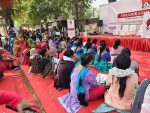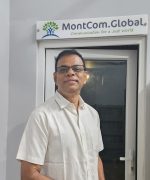By Matters India Reporter
Mananthavady, September 23, 2019: A community radio has played a crucial role in helping Kerala’s Wayanad constituency to register record polling in the last Lok Sabha elections.
“Radio Mattoli” made relentless efforts to spread the message of the Festival of Democracy, a project of the Election Commission of India.
The result: Wayanad marked a historic polling of 80.31 percent in May.
Rahul Gandhi, the then president of the Congress Party, the main opposition in the country, won the seat with a record margin of 431,770 votes.
Mattoli (90.4 FM), the only community radio station in Wayanad district, is managed by the Social Service Society of the diocese of Mananthavady.
It was one of the partner community radio stations of the Festival of Democracy project also promoted by the UNESCO Chair on Community Media, and the University of Hyderabad.
The project spread electoral literacy and voter education through community radios during the General Elections leading up to the 17th Lok Sabha Elections. The aim was to promote and celebrate the democracy and the elections in India.
With an audience of around 250,000, Radio Mattoli broadcast an array of programs that included four radio spots, one quiz program, twelve episodes, and four posters during March and April.
Team Mattoli produced a skit that focused on the history and evolution of democracy. Various aspects of democracy including the etymological meaning of the word democracy, the difference between democracy and other modes of administration was deeply touched upon through the skit.
The skit also portrayed the evolution of India into a democratic nation including the formation of the Indian Constitution, and the history of the voting process in India.
Sallapam (chit chat), a live phone-in quiz program on democracy saw the community members actively engaging with the radio station. Fifteen questions were asked and 23 callers participated in the live phone-in program.
A series of expert interviews were conducted with a number of election officials. One of them was N I Shaju, nodal officer of Systematic Voters’ Education and Electoral Participation program, better known as SVEEP.
It also interviewed Wayanad District Collector A R Ajayakumar to provide expert views and opinions on matters related to getting enrolled in the electoral roll, how to change polling station or, constituency, edit the mistakes in the voter identity card and other election-related matters.
Another expert talk was on the use of voter-verified paper audit trail (VVPAT) machines.
Shaju and Mananthavady Deputy Tahasildar S Bindu explained the background for introducing VVPAT, its use, importance, and functioning.
A few days before the polling, Radio Mattoli shifted its attention to shows that articulated the demands of the community members.
Tribal people residing in Edamunda colony shared their voting experiences. The people spoke in their own dialect about the importance of voting and their expectations from their Member of Parliament.
Father Bijo Karukappally, the station director, interviewed the nodal officer on tender voting, challenge voting, Non Resident Indian, overseas citizens voting, postal ballot voting, service voting and other matters.
A second round of interview with the nodal officer shed light on the various voting procedures, election officers such as Returning Officer, Assistant Returning Officer, General Observer (from other states), and expenditure officer.
It also gave the listeners an idea on how to report and what action will be taken if someone is found guilty of compelling a voter to vote for a candidate or party, or the procedures if an election official violates model code of conduct.
On the day of voting, the radio station gave updates at the time of voting and the arrangements made for election officials and security forces at polling station.
The rest was history for the community radio situated in a shopping complex in Wayanad and licensed by the federal Ministry of Information and Broadcasting, based in New Delhi.
Its listeners, mostly marginalized farmers and tribal people, now call it “Nammude Mattoli” (Our Echo) as it has become a credible source of information that has direct and immediate relevance to the community living within its transmission zone.
It provides opportunities for farmers, tribes, Dalit, women and children to speak out, and be heard.
The radio station claims to be the first electronic media channel to broadcast information in a tribal language. The radio signals cover over 85 percent of the Wayanad district and they have 20 hours of daily broadcasting starting from 5.30 am to 1.30 am.
The station broadcasts information related to various topics and has become an important source of information for the tribal people.
Programs such as ‘Njattuvela (sowing season)’, ‘Vayalnadu (land of fields)’, and ‘Chaya Kada (tea kiosk)’ give information on the market value of products, weather updates and other information required. These programs have helped the marginalized express their views socially, economically, culturally and spiritually.
The daily broadcast of tribal dialects is done by tribals who come, learn and do the editing in their language.
Another venture is ‘Mattolikootam (gathering of Mattoli)’ and ‘Mattoli GramaKootam (gathering of Mattoli village)’.
Some 20 Mattolikootams go to villages every Saturday where the entire village functions like a radio station and their grievances are recorded.










